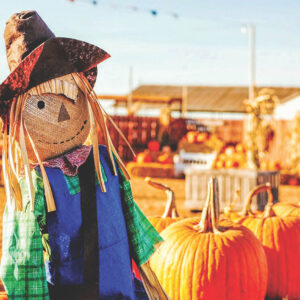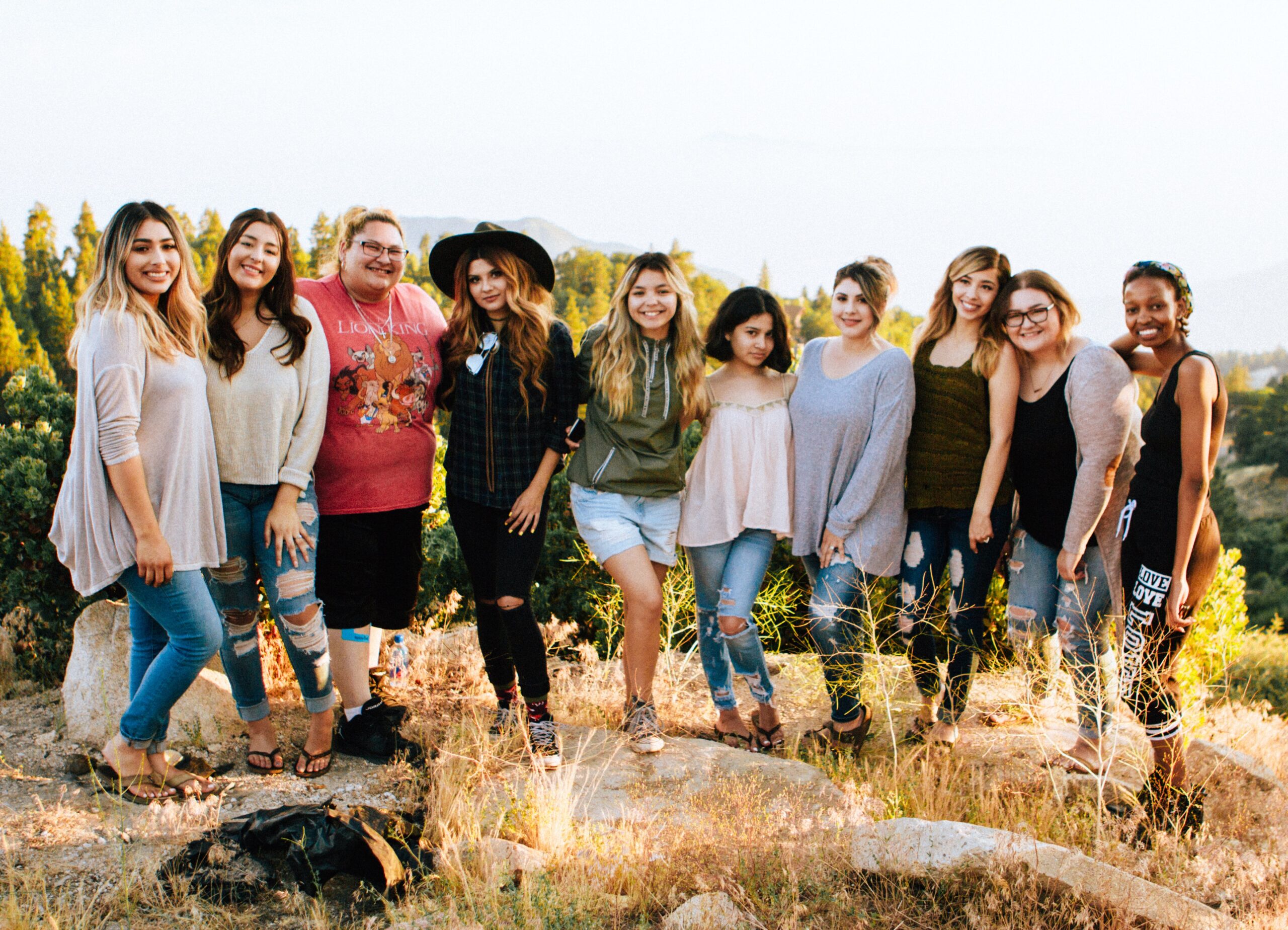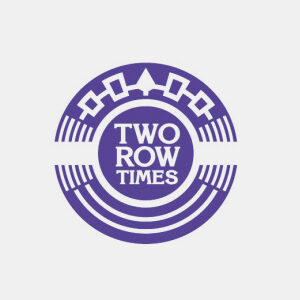“We should not teach our young people that it is appropriate to stereotype and caricature any cultural group, including First Nations.”
Shawn A-in-chut Atleo, Former National Chief of the Assembly of First Nations in Canada
The movement to stop the widespread use of First Nations mascots in sports is building momentum. The staff at Saskatchewan University called for the end of the use of First Nations logos and mascots in sports. First Nations citizens have challenged the Thorold hockey organization to stop its use of an offensive image of a First Nations person as its logo. The Nepean amateur football team dropped the “R-word” as its team name and the Saskatchewan school district changed its team name from “Redmen” to “Redhawks.” These actions add to the increasing chorus of voices condemning the Washington football team’s use of the “R-word” as its team name and the many schools that have already stopped using First Nations mascots.
More and more people are recognizing that the use of stereotypical and offensive caricatures of First Nations people as mascots and the use of outright dictionary-defined racial slurs (i.e. the “R-word”) are a form of discrimination. Under the guise of “honoring” First Nations people, these sports teams aggressively market offensive images to the community and profit from their use – “racism in service to capitalism.” Research now supports what many have known all along – the practice of repeatedly exposing Indigenous people to harmful stereotypes poses serious negative mental health consequences, especially to children and young adults. Thus, ending the practice of using First Nations mascots must be considered a public health priority.
The public health threat of First Nations mascots takes two forms that together creates a toxic discriminatory environment. First, laboratory studies among Native Americans demonstrate that the presence of Native American mascots such as Chief Wahoo of the Cleveland baseball team or the University of North Dakota’s “Fighting Sioux” results directly in lower self-esteem, lower mood, and lower belief in community worth among Native American adolescents and young adults. Importantly, these effects occur regardless of whether the mascot is considered “offensive.” The reason is that when children and young adults see these stereotypes, it limits their sense of who they are and who they can be: in this case they are relegated to being a “mascot.”
Second, research shows that the ongoing use of First Nations mascots makes it more likely that non-First Nations people will view First Nations people negatively and increase disrespectful behavior toward them. Experimental studies demonstrate that non-First Nations people who viewed Chief Wahoo were more likely to demonstrate negative automatic processing biases against Indigenous people. Further, qualitative analyses show that individuals who indicate support for these stereotypical mascots actually express ignorance of and disdain toward First Nations people, especially those who find the school’s mascot offensive.
We have seen this effect for decades with behavior surrounding First Nations mascots in the form of the use of “redface,” “tomahawk chops” and headdresses as if actual First Nations people don’t exist and their feelings do not matter. We see more recent evidence of these effects in the most recent offensive images of students using the horribly offensive term “Siouxper Drunk” at University of North Dakota events. This blatant disregard for First Nations culture and the feelings of First Nations people is further demonstrated by the Washington football organization’s tone deaf response to congressional calls for changing the team name: “…don’t they have more important issues to worry about than a football team’s name?” Certainly, no other group of people is forced to tolerate this type of institutionalized and prevalent racism.
Studies show that discrimination in the form of racial slurs and unequal treatment predict poor mental health in the form of elevated levels of depression, substance abuse, physical pain as well as suicidal ideation and behavior among Native Americans. This is particularly troubling because these issues that are already problematic in First Nations communities and are linked to suffering, loss of functioning and productivity, and in the most extreme cases, loss of life.
Thus, this is not an issue of “political correctness,” but one of public health. The gravity of this public health issue has been acknowledged by professional organizations such as the American Psychological Association, the American Sociological Association, and the American Counseling Association – all of which years ago called for an immediate end to First Nations mascots.
The ongoing use of such mascots above the protests of the First Nations and Native American community sends a clear and disturbing message to First Nations people that they do not deserve the same protection and consideration that is afforded to other groups. This message has clearly been shown to cause harm among First Nations people, particularly children and young adults. Given the significant challenges already faced by the First Nations community related to their mental and physical health, sports teams should recognize that this practice represents a harmful and preventable public health risk and immediately stop the use of First Nations mascots.
The full list of references for this article are available online on our webpage at www.tworowtimes.com
References
“We should not teach our young people that it is appropriate to stereotype and caricature any cultural group, including First Nations.”
Shawn A-in-chut Atleo, Former National Chief of the Assembly of First Nations in Canada
staff at Saskatchewan University call for the end of the use of First Nations logos and mascots in sports,
http://www.ctvnews.ca/canada/staff-at-saskatchewan-university-calls-for-end-of-first-nations-logos-mascots-1.1546812
First Nations citizens have challenged the Thorold hockey organization to stop its use of an offensive image of a First Nations person as its logo
Neplean amateur football team dropped the “R-word” as its team name.
Saskatchewan school Redmen to Redhawks
http://www.huffingtonpost.ca/2014/06/03/redmen-logo-saskatoon-redhawks_n_5440652.html
This work joins the increasing chorus of voices condemning the Washington football team’s use of the “R-word” as its team name (including a recent letter from 50 U.S. senators formally protesting the team name)
http://www.usatoday.com/story/sports/nfl/redskins/2014/05/22/washington-redskins-senate-nickname-american-indians-daniel-snyder/9439613/
and the increasing number of United States schools that have discontinued the use of Native American mascots.
http://www.ncai.org/attachments/PolicyPaper_mijApMoUWDbjqFtjAYzQWlqLdrwZvsYfakBwTHpMATcOroYolpN_NCAI_Harmful_Mascots_Report_Ending_the_Legacy_of_Racism_10_2013.pdf
Under the guise of “honoring” Indigenous people the teams aggressively market these offensive images to the community and profit from their use.
http://www.thenation.com/blog/179007/dan-snyders-open-letter-redskins-nation-presented-commentary#
Racism in service to capitalism
http://www.washingtonpost.com/local/the-battle-over-the-redskins-name-is-about-the-exploitation-of-a-stereotype-for-profit/2014/06/01/694b7084-e99b-11e3-93d2-edd4be1f5d9e_story.html
Research now supports what many have known all along — the practice of repeatedly exposing Indigenous people to harmful stereotypes poses serious negative mental health consequences to Indigenous people, particularly children and young adults.
http://www.espn.go.com/pdf/2013/1030/espn_otl_Oneida_study.pdf
First, laboratory studies among Native Americans demonstrate that the presence of Indigenous mascots such as Chief Wahoo of the Cleveland baseball team or the University of North Dakota’s “Fighting Sioux” results directly in lower self-esteem, lower mood, and lower belief in community worth among Native American adolescents and young adults.
http://sitemaker.umich.edu/daphna.oyserman/files/frybergmarkusoysermanstone2008.pdf
Experimental studies demonstrate that non-First Nations people who viewed Chief Wahoo were more likely to demonstrate negative automatic processing biases against First Nations people.
http://www.ncbi.nlm.nih.gov/pubmed/22017074
Further, evidence is that even in setting in which the stereotypical mascot is in theory “honoring” Indigenous people such as the University of North Dakota, qualitative analyses indicated that individuals who indicate support these stereotypical mascots actually express ignorance of and disdain toward Indigenouss, and are particularly disdainful of Indigenouss who did not support the school’s mascot.
We see evidence of these effects in the most recent offensive images of students using the horribly offensive term “Siouxper Drunk” at University of North Dakota events.
http://www.twincities.com/localnews/ci_25795534/tribal-leaders-urge-und-take-action-siouxper-drunk
Don’t they have more important things to worry about?
http://espn.go.com/nfl/story/_/id/10430475/senator-threatens-nfl-tax-exempt-status-washington-redskins-name
Further studies have shown that discrimination in the form of experiencing racial slurs, racial harassment and bullying is associated with poor mental health among Native American children and adults.
http://www.espn.go.com/pdf/2013/1030/espn_otl_Oneida_study.pdf
Further, these mental health issues are among the leading causes worldwide of suffering, loss of functioning and productivity, and in the most extreme cases, loss of life.
http://www.ncbi.nlm.nih.gov/pmc/articles/PMC3173804/
NCAI
http://www.ncai.org/attachments/PolicyPaper_mijApMoUWDbjqFtjAYzQWlqLdrwZvsYfakBwTHpMATcOroYolpN_NCAI_Harmful_Mascots_Report_Ending_the_Legacy_of_Racism_10_2013.pdf
US Commission on Civil Rights
http://www.usccr.gov/press/archives/2001/041601st.htm
American Psychological Association
http://www.apastyle.org/manual/related/apa-resolution-on-american-indian-mascots.pdf
American Sociological Association
http://www.asanet.org/about/Council_Statements/use_of_native_american_nicknames_logos_and_mascots.cfm
American Counseling Association
http://aistm.org/2001aca.htm











It is about time Health stepped up to the plate for Aboriginal Health. Long held views of Aboriginal people are still part of access to health care.